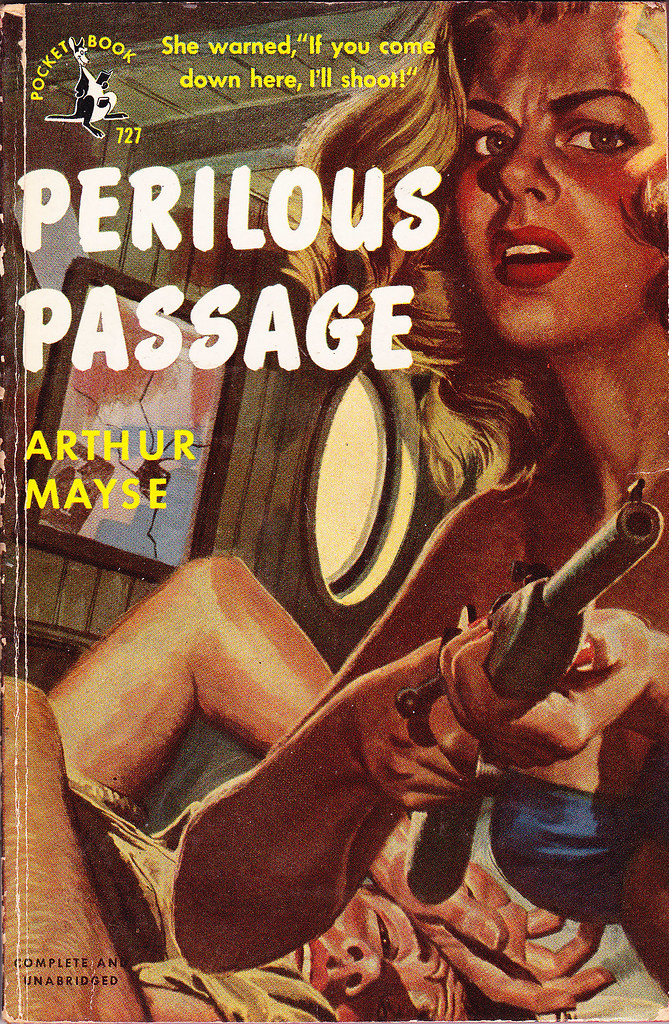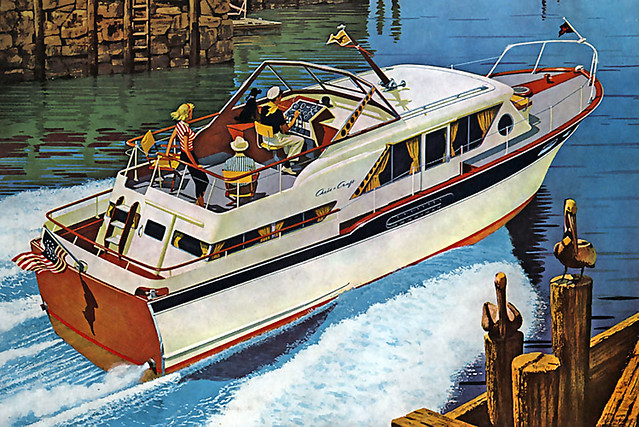
Because he was so single-minded of purpose, so prolific, because he had such a facility for such a diverse range of subject matter - and because he was just so damn good - James R. Bingham has become in my mind - not a heroic figure, exactly - but something of a larger-than-life character.

Bingham was an artist from the get-go. He made that decision at age 3 (beating out Al Dorne, who made it at age 5).

His son, James Bingham Jr. told me, "Dad did artwork for the yearbooks for all the years he was in high school. He would draw on anything... when Dad's family got together they all used to complain about having black bottoms... Dad used to go to the bathroom and draw on the toilet paper then roll it back up!"

Young artists looking to break into the business are often advised, "Draw. Draw everything... and all the time." Bingham must have innately understood this. His industrious nature - and, of course, his talent - served him well. After just two semester of art college he was offered a teaching position. He chose instead to go to New York, where he immediately found an art rep and steady work as an illustrator.

I asked Jim Jr. if his dad got involved with the Society of Illustrators. He replied, "The Society of Illustrators approached my Dad to become active,but he was so busy with work, home assisting with rearing kids, and having a social life, he didn't think he had the time. Also there were monetary requirements he thought were excessive."

Perhaps more telling about why he chose not to join the SI is Bingham's attitude about the distinction between fine and commercial art... and his perception of his role in its creation. Jim Jr. wrote, "Many of the artists in the Society were what Dad considered not illustrators, but fine artists. Some, for example, took months to complete an assignment whereas Dad, in the same amount of time, would complete many assignments."

James R. Bingham clearly had an admirable work ethic. Like many artists of his generation, he also clearly saw himself as a craftsman first - working at a skilled trade he had a natural affinity for - and working hard to provide for his family. There is, however, a down-side to the type of personality that almost obsessively immerses itself in this type of lifestyle.
Jim Jr. told me, "Dad didn't garner a lot of attention as he always worked at home or in a private studio. The illustrators of the Society in some ways shunned Dad for not being available for functions and other things."

"He, as with a lot of artists, was a loner in most of the trappings of life. Art was his life and the rest of it was sometimes a strain."
Like so many other East Coast illustrators, the Binghams lived for a time in the artist's mecca of Westport, CT, which suggests that Bingham was at least to some degree seeking out the company of his peers. But, Jim Jr. says, "In '49 we experienced a Noreaster storm. The snow was up to the second floor windows. M&D decided to have a storm party, snowed in for 10 days with a dozen other people in the house. No heat, cooking over the fireplace in the living room, and no facilities other than "out back."

"By the time we could get out M&D never wanted to see their house guests again and vowed never another snow storm!"

Jim Jr. continues, "Dad and my uncle Bob took a fact finding trip to Florida and it was love at first sight for both of them. In 1950 it was off to sunny Fl."


This was the decade when Bingham became the regular artist on two major ongoing Saturday Evening Post series: Perry Mason...

... and Tugboat Annie.

Jim Jr. said, "After we moved to Florida in 1950, Dad continued working with Seymour Thompson [in New York]." Below, The Thompson Reps ad from the 1952 New York Art Directors Annual shows Bingham in fine company among some of the best, most successful illustrators of the 1950s.

Bingham was also picking up work locally in Florida. Jim Jr. doesn't recall exactly when, but at some point Seymour Thompson retired...however, "by then Dad was doing a land office business with architectural renderings. For a while I think Dad did just about every high rise ever envisioned for south Fl. He also did work for Niemam & Marcus and yearly did the Chris-Craft catalog as their corporate office was just north of us in Pompano Beach, Fl."

"His work for Chris Craft are perfection when reduced for advertising."*

Jim Jr. shared with me the story of his father's death:
"He was in the middle of the Chris Craft work when he had a stroke."

"This occurred just after Mom's death. He went to the doctor and died the day his results came back from the doctor's office."

"At that time I was acting as an artist rep. for the area artists. His death took the wind out of my sails and I moved away from the representation."

"Just before his death he had decided to start fine art and completed some studies... but I didn't understand them."

"They seemed to be dark & complex... very compelling."

"But that just wasn't to be."

James R. Bingham died in 1971.
Many thanks to James Bingham Jr. for sharing the story of his father's life and career with us. Thanks also to Bruce Hettema of P&H Creative Group, Heritage Auctions, James Vaughn, and KOdama on Flickr and John, the owner of 1959Cadillac.com for sharing their James R. Bingham images with me for this series of posts.
* Note: I was unable to get confirmation that the Chris-Craft illustrations in today's post, found online, are definitely by James R. Bingham - but they are from the correct time period and look very much like they could be by Bingham. ~ Leif






0 comments:
Post a Comment